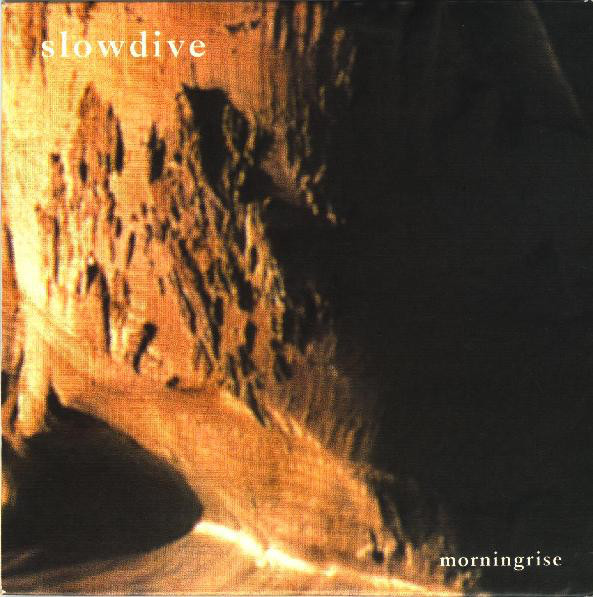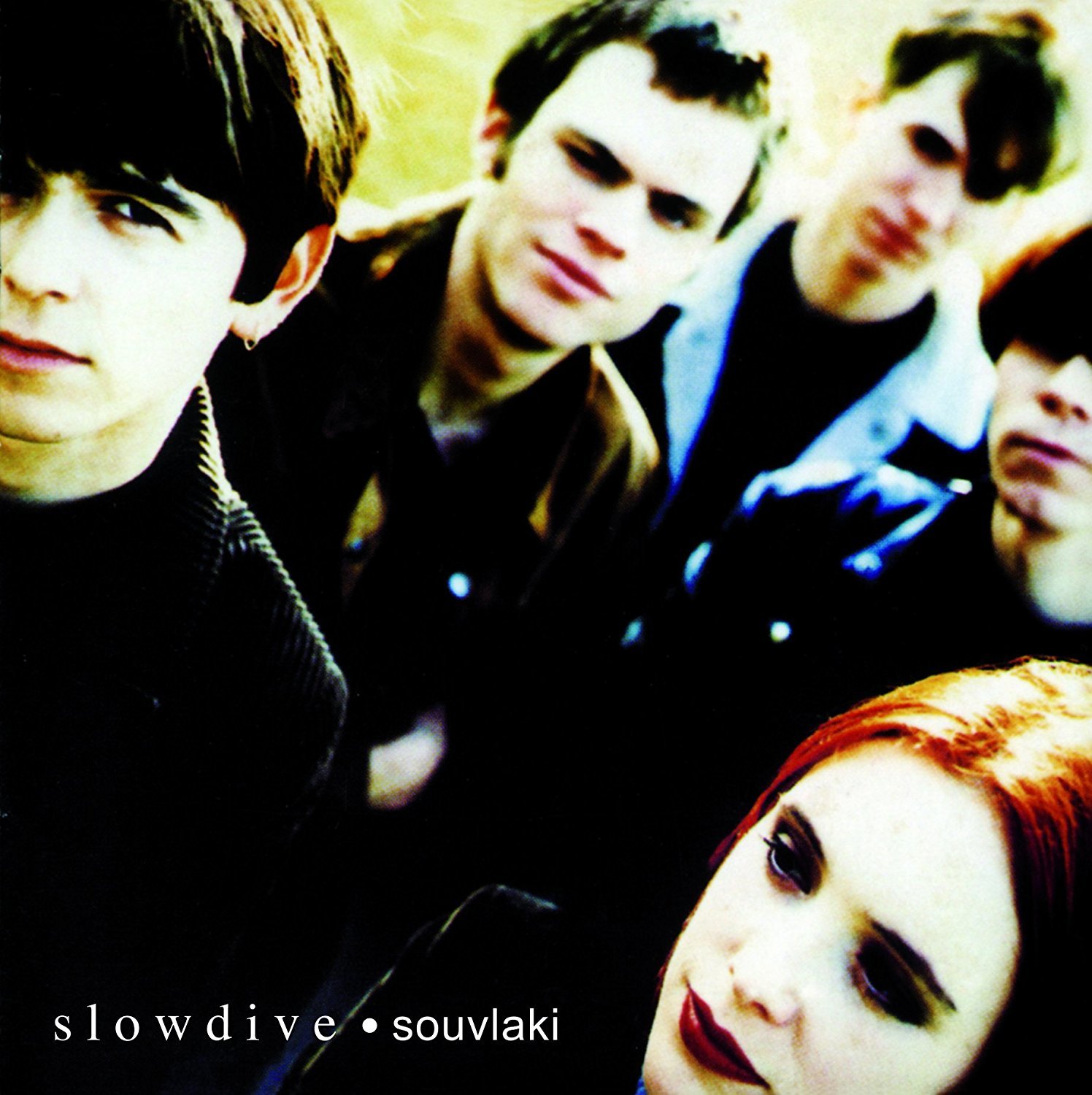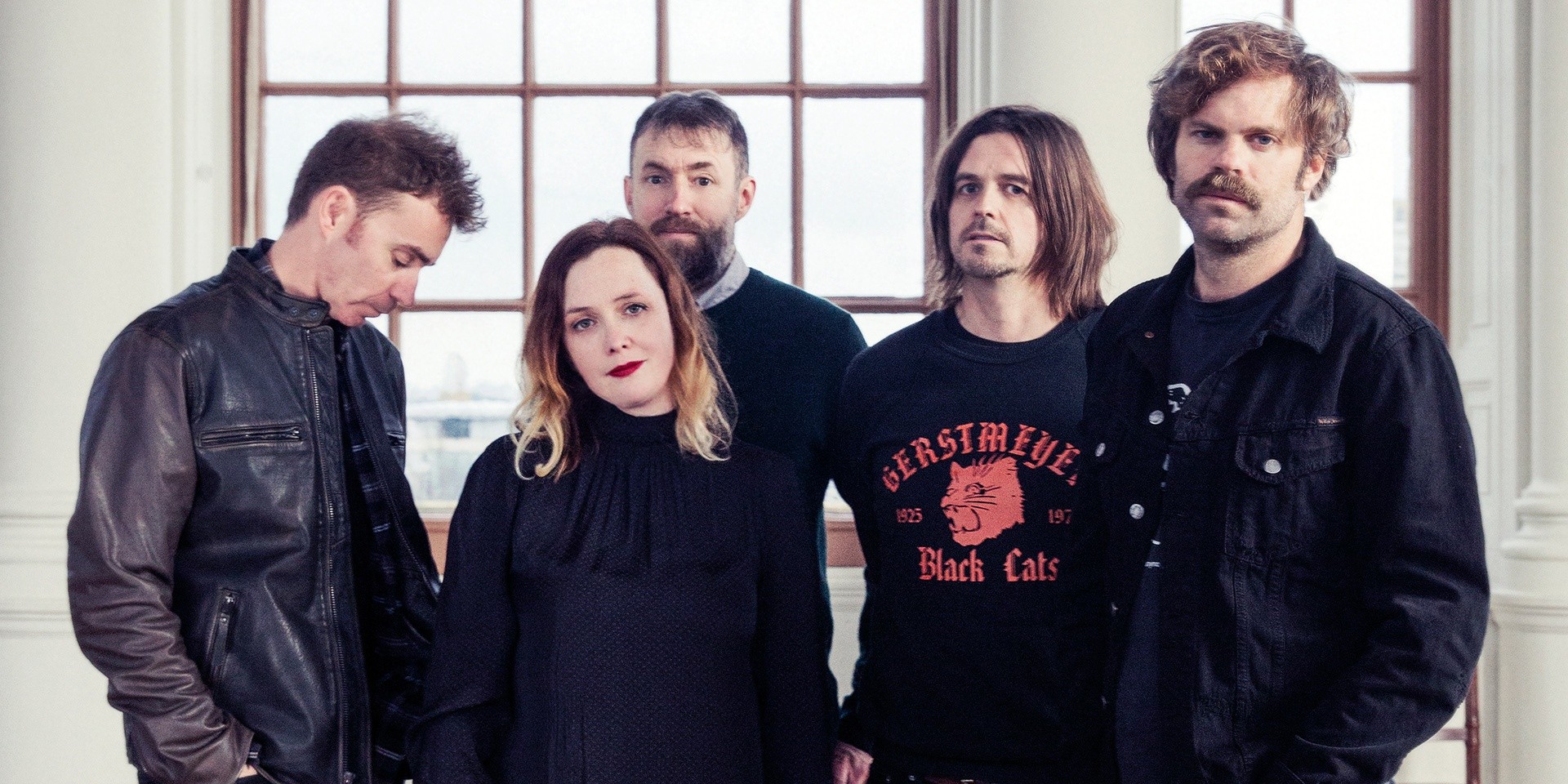Slowdive first made music in an era where the term "shoegaze" existed to ridicule bands of their ilk — a term derived from their unassuming stage presence.
Unwittingly made one of the forerunners of this movement, the five-piece band have since become massively influential over generations of indie rock bands, allowing newer acts to claim that term and indelibly run with it. In 2017, Slowdive have done the inconceivable: picking up where they left off 22 years ago, almost flawlessly.
Conditioning themselves back into a fully-functioning unit wasn't easy — and it took years of touring together to reclaim their ethereal groove — but their new self-titled album shows that their legacy far exceeds their old work. More than 20 years on, Slowdive are taking on the world again, this time without the baggage that came with being a newly-reformed legacy band in 2014.
It's probably why Laneway Festival decided to pick them up for their 2018 run. The festival has usually reserved their line-up for acts less than a decade old, with the exception of Little Dragon, which makes Slowdive's inclusion all the more intriguing (and exciting).
"We’re super excited that we were invited to play at this festival because it’s a lot of bands who are current," Slowdive's Christian Savill tell us. "So, to be thought of as a current band is just really exciting and we’re really, really happy about it.”
We spoke to Savill, who serves as the band's main guitarist, and got him to tell us all about every album in their discography — all except their fourth EP, Outside Your Room, which primarily features tracks from their second album Souvlaki.

Slowdive (1990)
Let’s start with the first EP, the self-titled Slowdive EP. This was not long after you joined the band, correct?
Correct. That was a few months after I joined.”
You replied to an ad in a newspaper and joined the band, but in terms of the writing process for the EP, how involved were you?
All the songs in that EP happened right before we recorded them and the band played it all together. It was really good because I would say that’s when the band really started to come together because before, we'd sounded like a bunch of other bands.
When we did that, it was originally just a demo, we had gone to Weston-super-Mare and we recorded it. We didn’t know we were recording our first record. We just went in there and had fun and recorded these new songs and then Creation ended up releasing them.
We tried re-recording them because the first time, it was in a really cheap studio and it cost nothing. But Creation said “Nah, you need to re-record them in a big, fancy studio,” so we went to a big, fancy studio and tried to re-record the first EP.
It just sounded terrible so we ended up releasing the demo, and it only cost 100 quid per night.”
What did you not like about the re-recorded version?
I don’t exactly know, there was just something about the original demos that were — I don't know — they were almost like a live recording, a live performance. It was really stripped down and when we went into a bigger studio we were like “wow, we can do this, we can do that,” and I think maybe we just tried to do too much and we lost the original feelings of the songs.
The first EP is really simple and I think that’s important. It’s an important lesson we learnt there.”
The first step that Slowdive took as a band, released merely a year after their formation. With their original demo tracks, they attracted the attention of indie label Creation Records, which became their home until 1995, not long before their eventual breakup.


Morningrise & Holding Our Breath (1991)
Is it safe to say that taking on Morningrise and Holding Our Breath became an easier task in a bigger studio than the first EP?
That’s right, yeah. We had lost our old drummer so Morningrise was the first release with the new drummer that we had: Chris Hufford, who ended up being really important on a lot of our records because he ended up engineering all our future records at the time.
That was the first time we got new band equipment and all that, and we were feeling really confident and excited, we were almost like a proper band at that point whereas before, we were just a bunch of kids just having fun. We were young and naive but kind of finding our way a little bit.“
When you guys released Just For A Day in the same year, were these songs written around the same time as these EPs?
Morningrise was written right after the first EP came out. I remember going to Neil’s house and he was like “I’ve got a new tune, check this out,” he showed me a couple of other ideas that he had and we worked on other stuff.
Back in those days, we didn’t have a backlog of songs to refer back to, we were mostly making them up as we went along. When we went back to Creation, they said, “You’ve got more songs than on the demo,” and we were like, “oh yeah, we’ve got loads of songs” but really we didn’t, we had like nine songs.
We had done the Holding Our Breath EP just before Just For A Day and we were really confident about that because we had all those songs before, we played them live before going into the studio. So we knew what we were doing."
1991 became the band's first remarkable year, moving forward with two well-received EPs — Morningrise and Holding Our Breath — before releasing their debut full-length, Just For A Day, which solidified their dream pop-influenced sound with a harder edge.

Just For A Day (1991)
Was there any trepidation going into the studio to write a full album this time?
With Just For A Day, we went into the studio to record an album because Creation said “You need an album,” and we had nothing, we had no songs prepared.
When you go into a studio to record an album, you’ve got like two months to do it and when you haven’t got any songs, that’s really high pressure. I think that was the first time in the band where we didn’t really feel that comfortable because, all of a sudden, we were receiving pressure.
All the EPs had been really well received and had done really well and suddenly we’re asked to do an album with a lot of expectation and no songs. We did it, and some of the songs are good.
But if we could go back in time, we’d change things a little, maybe buy ourselves a little more time or put some of the songs from the first EP on there as well. We’re all a little bit disappointed about the album I guess.”
Would you guys ever consider re-recording Just For A Day with the current line-up now?
No, definitely not. (laughs)
We tried to play the songs live while we were rehearsing and we just didn't feel it and if you're not feeling it, you just don't do it. If people like it, great. It’s not that we hate it, it just doesn't feel right for us.
We definitely wouldn't re-record it because when we were working on this new record, it was mentioned that we’ve got a lot of unreleased songs and that we should re-record them and add them into the new record, and we thought, “Nah, it just doesn't work anymore." If it wasn't good enough then, it won't be good enough now.”
Just For A Day came at the tail-end of Slowdive's popularity with the press, which dipped following the emergence of shoegaze in British music — and its unpopularity with critics — later that year.
Eventually reevaluated as an important album in the shoegaze canon, Just For A Day features a band harnessing their well-known strengths into a cohesive effort.

Souvlaki (1993)
Would you change anything about Souvlaki then?
Well, in the end we were happy with the record, it just took us a really long time to get there. I don't know if I would change anything, really. In the end, we’re pretty happy with the album.
Because the first album was so difficult, it took us a long time to figure out how we wanted the second album to sound like. Meanwhile, music moves on, the landscape of music changes so often and there are new bands coming around and we’re kind of stagnant.
So we were almost figuring out what kind we wanted to be, how was the second album going to sound like. You don’t want to hurry that. Our second album could’ve been really bad if we hurried it like we did the first one. Now we’re really happy with it.”
In the build-up to the release of Souvlaki, there was a lot of attention from the media as well. Did that add on to the pressure of trying to deliver something?
“The press was weird back then, we can’t really have a go at it because they helped us out at the start. They helped us with these amazing reviews so as they turn around and say, we can’t have it both ways. If they start criticising us, we have to take that.
I guess with the second record, we were a little nervous about what they would think about it. At the end of the day, while we did worry about it, it didn't rule us or anything. We’re still happy with the record and that’s something you can’t control.”
Souvlaki may be a classic now, but at the time of its release — where bands like Blur and Oasis were favoured by the press, along with the sounds of grunge across the pond — any shoegaze band was reviled by critics, and Slowdive were unceremoniously taken for a ride.
History has been kind to the album, which stands as one of the band's greatest achievements – balancing their artful tendencies with a propulsive attitude, Souvlaki was crafted with the help of pioneering ambient artist (and super-producer) Brian Eno.

Pygmalion (1995)
Pygmalion is the band’s most experimental and ambient-leaning album. What do you think about the record in retrospect?
I remember at the time being really unsure of what we should do. I’m really glad that record turned out that way. At the time, Britpop was really happening and a lot of bands were jumping on the bandwagon — there’s nothing wrong with that, that’s fine — but I’m really glad we experimented with electronic music.
At the time, we weren’t sure about this. We were out there with no support, we felt like we were kind of on our own. I like the record a lot, I like it because it’s just totally going against what most bands would do to sort of save their career. I think that’s why it’s so special, it’s not the record that people wanted us to make, it’s the record we wanted to make at the time.
We were doubting if we should’ve done something more accessible. You just don't know, but now looking back at it, I really like it. It’s a brave record, it’s uncompromising, it’s everything an album should be, it’s not trying to be something it isn’t. It is what it is. If people like it, great. If not, doesn't matter.”
If Souvlaki was already too obtuse for Britpop-loving critics, Pygmalion gave them more reasons to hate the band, despite the latter being their least "shoegaze" album to date. Taking steps further away from their guitar-centric work, Pygmalion is uncompromisingly spacious and meditative.

Slowdive (2017)
Compared to the dynamics of the band back then, how different was it this time when the band reconvened to record this album?
It’s been 20 years since the last one. For the last three records we all kind of hung out together all the time, we all lived together. Now we all live in different cities and we’ve all got families and stuff. It almost felt like the were starting again.
It took us a lot of time to just get that going again. It’s like a big vehicle that’s got no oil in it. It takes a while to get it back up and moving again.
It was also really nice to have those moments where we would play some new stuff together and you get really excited about it. That was always my favourite part. It was nice to have those moments again.”
Looking at the songs off Slowdive, do you think it’s the perfect culmination of the evolution and maturity of the band?
I think so. I think it was kind of a conscious effort that we wanted to make the new album sound like a Slowdive record. We couldn’t release something that bore absolutely no resemblance to what we used to sound like. That was kind of hard to do, we couldn't force it.
For a little while, we were playing songs and we were like “does this sound like us?,” so we had to get it to the point where we weren't really thinking about it and we were able to relax and play like the old times. We went back to our old studio as well, which I think helped. It was really nice to just spend time with our friends really.”
Looking at all of the band's albums, from Just For A Day to Slowdive, how would rank them in order of preference?
That’s a hard one. I’ve never listened to them in that way. I don't know because they all kind of different. Right now I like the new one because we’re playing it and it’s really nice to see how people are reacting to it. I don’t know. Just For A Day and Souvlaki are just so different. I’d probably say Just For A Day is my least favourite.”
Returning to a wholly different musical landscape in 2014, Slowdive reunited and played shows to swarms of fans all over the world. Three years later, their newest album, a self-titled, is just as vital and magnificent as anything they've done.
Slowdive will be performing at Laneway Festival Singapore 2018 on January 27th at Gardens By The Bay. Find out who else is performing here.
Like what you read? Show our writer some love!
-
